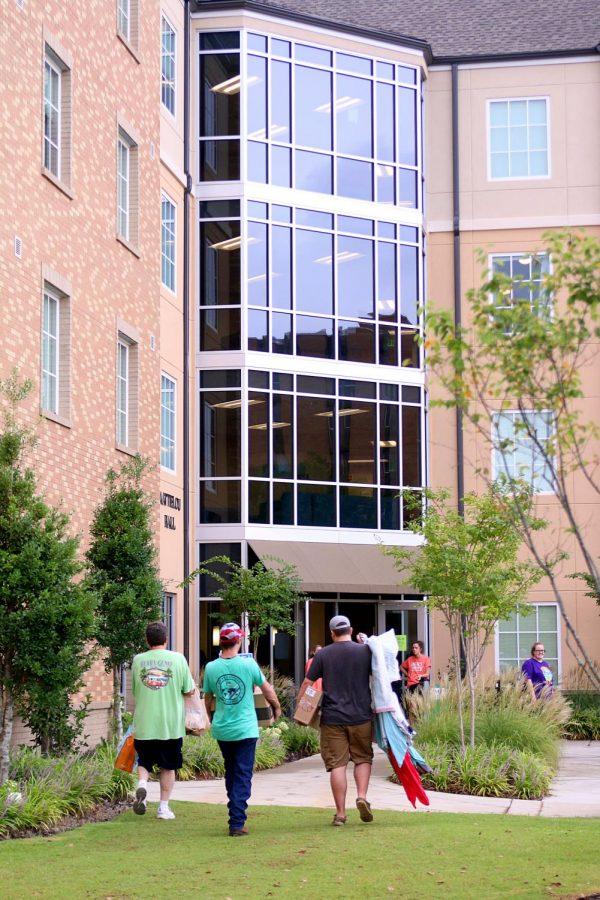Policy would restrict resident advisors’ relationships
February 9, 2017
A proposed update to the documentation regarding staff and student relationships would alter the University Consensual Relationship Policy to include paraprofessionals. The purpose of the change would be to prevent a resident advisor from having a relationship with anyone in the same building.
“The change that was suggested will change the policy from just staff and faculty to include paraprofessionals,” said SGA President Sarah Green. “So it’s just saying that resident advisors can’t have relationships with someone that they are over.”
“A paraprofessional is defined as a student who is selected, trained and supervised in assuming responsibilities and performing tasks that are intended to (1) directly promote the individual personal development of his or her peers, (2) foster the creation and maintenance of environments that stimulate and support residents’ personal and education development and/or (3) perform tasks that ensure the maintenance of secure, clean, healthy, psychologically safe and esthetically pleasing living accommodations,” according to the updated definition.
Director of University Residences Kevin Jacques said in the past they have had problems with resident advisors dating students in their buildings, and it holds the risk of bad situations after a breakup.
“If we can do something to help prevent that, then we do it,” he said. “So we are looking to protect both our student staff and the students that live on campus.”
Green said Staff Senate is considering the proposal and after they vote it will go to the Shared Governance Executive Committee.
The SGA Senate voted 12-11 in favor of the proposal on Jan. 19. Green said the reason some of the senators voted no was because it did not specifically say “resident advisor” in the definition of a paraprofessional.
“Paraprofessional is very much a housing residence life term,” Jacques said. “It’s not a student worker position, it’s not a professional position, — it’s kind of that next step above a student worker position, but it has a potential to have a power position over another student.”
He did not specify if the term would be applied to positions other than resident advisors.
Green said the policy would require the resident advisors to come forward and report their relationship.
“A paraprofessional staff member who engages in a prohibited relationship and/or fails to report will be subject to discipline up to and including termination from job duties and referral for possible violation of the Student Code of Conduct or Title IX. Other, lesser sanctions may be imposed depending upon the circumstances,” according to the memorandum.
If a relationship does occur between a resident advisor and a student in his/or hall, university residences can look into moving people, Jacques said. As long as they are in different halls, there is no problem.
He said they will look to move the resident advisor to another hall first, because that is easier. If it is not possible to move the resident advisor, they will move a student if there is a spot open in another hall.
“If we can move that risk, we can still maintain happy and healthy environments,” he said. “We just want to make sure that everyone is safe and has a healthy relationship.”
Senior Jarrod Vaughn said he believes that resident advisors should have freedom of choice.
“Resident advisors should be able to date or befriend whomever they want,” he said. “It’s not like they can really give special benefits to their significant other.”
Sophomore Emily Stafford said she has mixed opinions about changing the policy.
“I can understand why they are trying to put this policy into place,” she said. “(A resident advisor) may show favoritism to whomever they are in a relationship with. However, relationships are a private thing. I think as long as the significant other is not being treated differently, then it is fine.”



![Caleb Crumpton [COURTESY OF UNA SGA]](https://theflorala.com/wp-content/uploads/2024/07/caleb-crumpton-courtesy-of-SGA-425x600.jpg)






